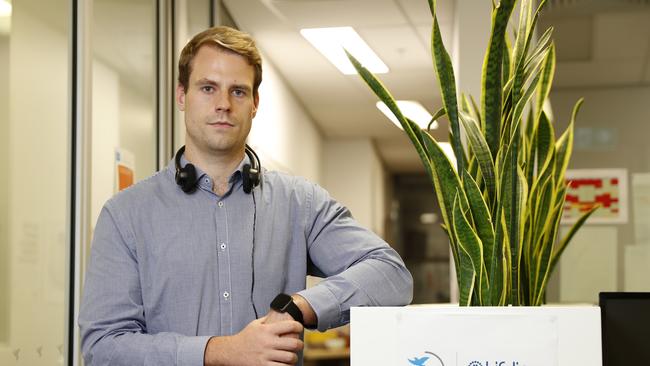Lifeline calls reveal Qld’s quiet mental health crisis
With the Covid-19 pandemic dragging deeper into the second year, Lifeline is receiving more calls than ever before from desperate Queenslanders.

QLD News
Don't miss out on the headlines from QLD News. Followed categories will be added to My News.
A mental health catastrophe is unfolding across the state with Lifeline’s crisis centres receiving 400 calls for support from Queenslanders every day.
With the Covid-19 pandemic dragging deeper into the second year, Lifeline is receiving more calls than ever before, with a 19 per cent increase in calls answered each day compared with this time last year.
At Queensland’s 10 Lifeline crisis support centres workers have answered on average 400 calls each day, equalling about 160 hours of support.
UnitingCare CEO Craig Barke said the call increase represented the ongoing stress and uncertainty people were experiencing.
“While we do not like to know so many people are doing it tough, we’re pleased to see people reaching out. Because by making that call, our crisis supporters can help them manage the challenges they are experiencing,” he said.

Lifeline Queensland has more than 500 crisis supporters who provide free, confidential support to anyone who needs it.
Australia’s largest suicide and prevention line said it was coping with the increase, but added additional workers were always welcome.
The organisation this month recorded its busiest three days in its 57-year history as the nation struggles with lockdowns across several states and territories.
Lifeline Australia fielded 3436 calls alone on August 16, about 40 per cent more than they averaged before the pandemic swept Australia in early 2020.
Mr Barke said there was a noticeable increase of first-time callers, with themes of calls relating to dealing with lockdowns, homeschooling, employment uncertainty, inability to access their usual support systems of friends and family, financial stresses and isolation and loneliness.
“Lifeline Queensland is committed to ensuring our services continue as usual during these unsettling times, and our crisis supporters are currently working harder than ever to provide that service and support,” he said.
However, lockdowns have affected Lifeline’s retail operations, which are used to fund the organisation’s support services.
“To train each volunteer crisis supporter costs thousands, and while we already have over 500 crisis supporters in Queensland, and we’re always wanting to train more volunteers to ensure they we continue being there for every call,” Mr Barke said.
“You can help keep our crisis support services remain accessible to anyone who ever needs it through a direct donation and by shopping at our retail stores and online shop.”
Originally published as Lifeline calls reveal Qld’s quiet mental health crisis



